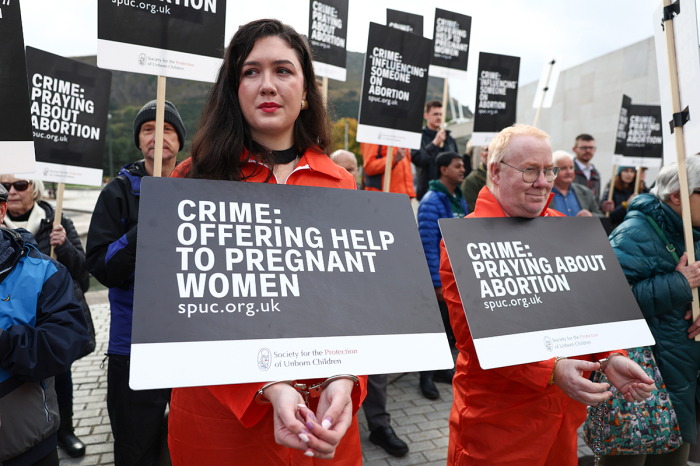
A newly released report by the United States government says the human rights situation in the United Kingdom deteriorated in 2024.
The U.S. State Department’s “2024 Country Reports on Human Rights Practices,” released last week, includes a section on the U.K. that states, “the human rights situation worsened in the United Kingdom,” with serious concerns about the use of criminal and civil laws to restrict expression, ADF International reported.
The report identifies buffer zone laws around abortion facilities as contributing to the erosion of civil liberties, noting that individuals have been prosecuted for silently praying or offering information within these zones.
It specifically cites the October 2024 conviction of Adam Smith-Connor, a British Army veteran, who was found guilty of silently praying across the street from an abortion clinic in Bournemouth. Smith-Connor was ordered to pay £9,000 (roughly $12,000) in legal costs. With support from ADF International, he is appealing the ruling.
The report says the buffer zone legislation criminalizes “efforts to influence others when inside a restricted area, even through prayer,” adding that an individual was convicted for “engaging in silent prayer” in such a zone.
Smith-Connor’s case was cited in a speech by U.S. Vice President JD Vance during the Munich Security Conference as an example of increasing censorship in Europe.
The report also flags digital censorship through the U.K.’s Online Safety Act 2023, which came into effect in 2024. The law gives Ofcom, the British communications regulator, authority over American tech companies with a substantial U.K. user base, regardless of whether they operate directly in the country.
It warns that this expansion of regulatory powers could lead to the weakening or removal of effective encryption, reducing privacy for users on platforms such as messaging services.
In Scotland, the Hate Crime and Public Order (Scotland) Act, implemented in April 2024, creates new offenses for “stirring up hatred” via speech or online content. Violations can result in imprisonment of up to seven years.
In a statement responding to the report, Lorcan Price, Irish barrister and legal counsel for ADF International in London, said the U.S. government’s criticism is a welcome acknowledgment of the gravity of the situation.
“It’s plain to see that the censorship crisis is worsening in the U.K. — from citizens being arrested and prosecuted just for praying in their heads, to the Online Safety Act clamping down on free expression online,” he said. “Whilst these developments are deeply concerning, it’s encouraging to see Britain’s U.S. allies highlight these issues, as more and more Brits speak out in defense of our hard-fought freedom of speech.”
Earlier this year, Scottish Member of Parliament Gillian Mackay acknowledged that the buffer zones law could extend to private homes in some instances.
In March, Mackay, who sponsored the bill, admitted that praying in one’s own home could violate the law if the activity was visible or audible from within a designated Safe Access Zone.
One letter sent to residents living inside a zone stated that although the law “in general … applies in public places,” it could also apply “in a private place (such as a house)” if the activity “can be seen or heard within the Zone and [is] done intentionally or recklessly.”
Mackay initially dismissed Vance’s claim about this provision as “misinformation.” However, when questioned again, she said that someone praying near a window could potentially breach the law, depending “on who’s passing [by] the window.”
Lois McLatchie Miller, a Scottish spokesperson for ADF International, said the law is deeply flawed and affects core civil liberties.
“Clearly, the ‘buffer zones’ law is fundamentally flawed when it comes to undermining basic freedoms of speech, thought, and religion,” she said. “We all stand firmly against harassment, which has been illegal for many years — but the law goes much too far in preventing people from praying, or holding consensual conversations, in large public areas of Scotland.”
She added that the government’s judgment of prayer as “performative” raises serious concerns.
“The accusation of prayer being ‘performative’ rather than genuine lies in the eye of the beholder. Who are the police to doubt the genuineness of somebody’s faith, based on where they are located, and the position of their hands?” she said.
The U.S. report notes that enforcement of the buffer zones, the Online Safety Act and Scotland’s hate crime legislation have collectively contributed to a pattern of legal and institutional pressure on expression and conscience rights in the U.K.
The maximum penalty under the Hate Crime and Public Order (Scotland) Act is seven years in prison.














